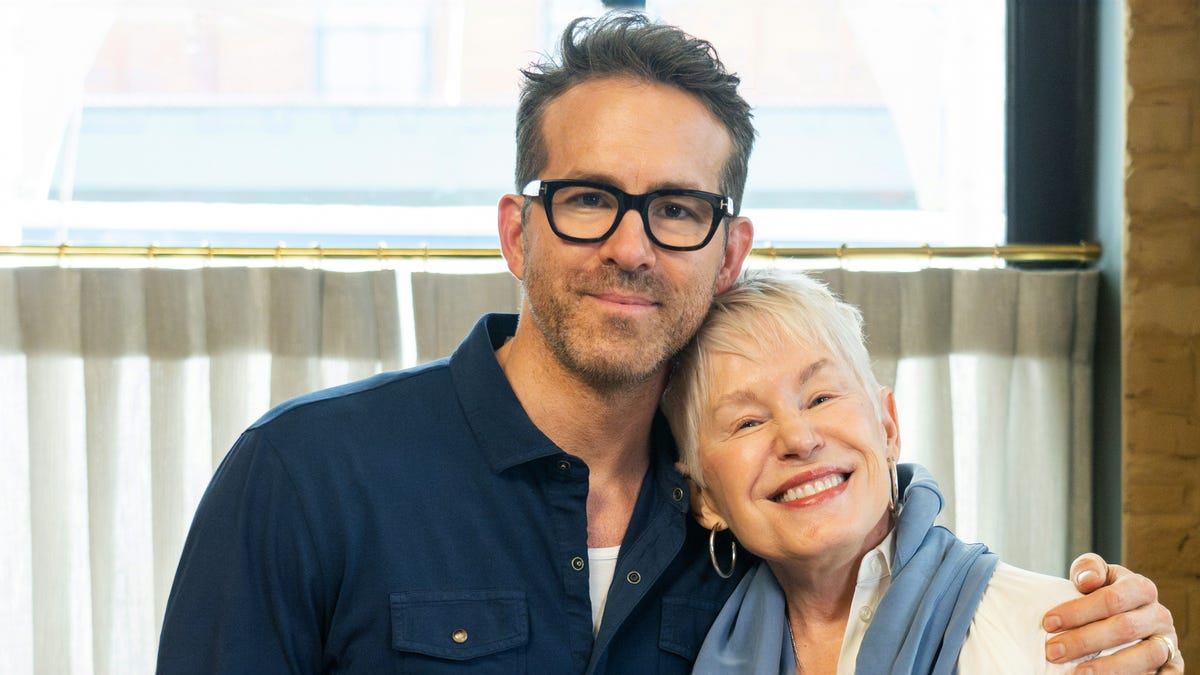Ryan Reynolds discusses his ‘challenging’ relationship with his father and its impact on him
Ryan Reynolds has a deeper understanding of Parkinson’s disease than many.
The “Deadpool & Wolverine” actor, aged 47, lost his father, James “Jim” Reynolds, to this illness about ten years ago. Parkinson’s is the second-most frequent neurological disorder after Alzheimer’s. Ryan has been actively raising awareness for Parkinson’s and is enhancing his efforts by launching a new initiative called “More to Parkinson’s,” in collaboration with Acadia Pharmaceuticals.
Parkinson’s is a progressive neurodegenerative condition that deteriorates over time and currently has no cure, affecting one million people in the U.S. This disease causes a loss of dopamine-producing brain cells that are crucial for movement. Symptoms can vary significantly among individuals, including changes in speech, balance difficulties, and muscle stiffness.
The aim of “More to Parkinson’s?” is to educate caregivers, patients, and healthcare providers about a lesser-known aspect of the illness: hallucinations and delusions related to Parkinson’s. Approximately half of individuals with Parkinson’s may experience these symptoms as the condition advances, although the exact cause remains unclear and the experiences differ widely from one person to another. Most patients do not communicate these issues with their doctors.
“It’s something I had no idea about back then,” Reynolds shares during an interview, looking back on his father’s journey. Jim Reynolds received his diagnosis in 1998 at the age of 57. The initiative’s website provides resources and signs to be aware of, along with potential treatments.
“If I could revisit the past, I wish I could have known about the treatments available now for managing those non-motor symptoms,” he states. “It might have significantly altered the nature of our relationships.”
‘A very complex relationship’
About 15 years ago, Reynolds began engaging in advocacy work and is now on the board of the Michael J. Fox Foundation for Parkinson’s Research.
“I have always admired Michael, not only for the usual reasons people mention, but also for transforming his energy into efforts that have helped so many feel less isolated — myself and even my dad included,” says Reynolds.
The “IF” actor directed his frustration over his father’s health into meaningful advocacy efforts. This frustration was compounded by his already challenging relationship with his father.
“People might shy away from discussing this, but seeing a parent decline can evoke anger,” he explains. “I think part of what I felt was frustration that my dad was going through this, mixed with the fact that our relationship was very complicated. I felt like the chance to connect or find common ground was slipping away from me.”
Reynolds wishes he had been more informed about the side effects his father faced — for himself, his father, and especially for his mother, Tammy.
“Caregivers are often the unsung heroes who do the most challenging tasks,” Reynolds notes. “My mom was undoubtedly one of those heroes. They seldom pause to reflect on their own feelings or assess what they are going through.”
‘I feel thankful’
Reynolds gained valuable lessons about parenting from his father, both the positive and the negative aspects, carrying them forward as he raises his four children with wife Blake Lively, three of whom are daughters.
“My dad didn’t have a lot of female influence around him,” he observes. “I believe that could have softened him.” He recognizes that his parents didn’t have the resources and guidance available to today’s parents, where “it’s hard to scroll through Instagram without coming across insightful advice on communicating with children.”
As Reynolds matures and grows as a parent, he has come to appreciate his father’s complexities more deeply (as is often the case with loss): “It’s easy to oversimplify people to rationalize your feelings — be it anger, inadequacies,
As I’ve grown older, I’ve come to understand that people, including my father, have many layers. I wish I could have known him on a deeper level. I long for more conversations where he could share his feelings and thoughts openly.
Reynolds expresses these sentiments to his own children and is careful about his reactions so he doesn’t mirror the silent treatment he received when he was upset.
“My dad was a master at becoming silent,” Reynolds remarks. “I realize I sometimes feel the urge to do the same.”
Indeed, people are complex, just as illnesses and the impact of trauma can be intricate.
Yet, Reynolds adds, “I feel thankful. Because of my dad’s influence, I believe I am a much better parent than I ever thought I could be.”

